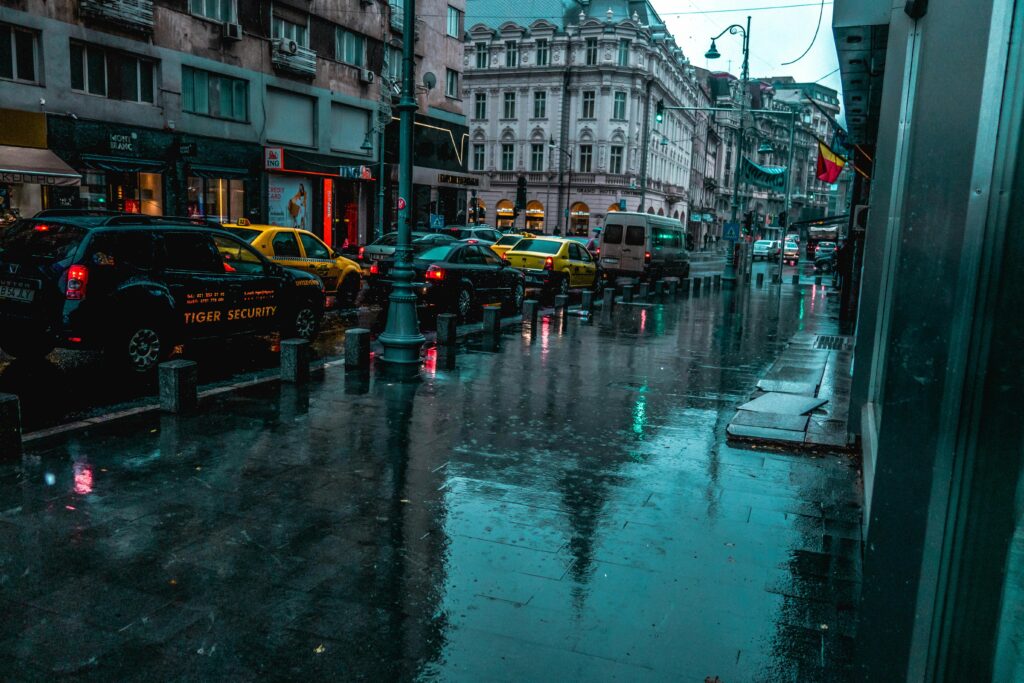
Regular readers of this blog will already know: I’ve been writing about Romania for years from the perspective of an entrepreneur active in the region, aiming to bridge the virtual gap between Romania and the Netherlands. Over the years, a small Dutch/Belgian community has formed here in Craiova, the city where I live and where NetRom is based. Although “community” might be a bit of a strong word, as it consists of just four or five regular couples. We get together for a meal and some drinks every few months and usually have a great time. Around two years ago, Alexandru Arambasa and his Dutch wife joined our group.
People who split their time between the Netherlands and Romania, both privately and professionally, do exist. Alexandru Arambasa, like me, is one such example, and it’s easy to imagine that we have plenty to discuss. He inspired me to take a slightly different approach in this Post Craiova and talk with him to offer you insight into the views of another experienced professional.
Alexandru Arambasa is an intriguing figure, almost like a celebrity hairstylist. He’s active and outspoken on social media, with various videos of him online, including appearances on Romanian national TV. Half the time, Alex works in his own salon in Craiova; the other half, he works in a high-end salon in Amsterdam’s Oud-Zuid district. He can talk vividly about this, but of course, we also discuss the (perceived) cultural differences between the Netherlands and Romania.
Alex begins by explaining how he ended up as a Romanian hairstylist in the Netherlands. “It’s almost as if the wind blew the Netherlands my way,” he says with a laugh. “Over the years, my connection with the Netherlands has only grown stronger – in a professional way, since I started working for a major international brand with a Dutch base about five years ago, and personally, as I’m married to a Dutch woman. We have a son together and a second child on the way.”
When discussing cultural differences and similarities, Alex’s perspective aligns with mine. Alex says, “The differences really aren’t that big. We’re like neighbors, with one living in the west and the other in the east. Our countries have been connected for centuries, but that doesn’t mean there aren’t differences and preconceptions on both sides. The key lies in education and communication. I’m committed to fostering that. It’s about being open to each other and asking questions. I have enormous respect and appreciation for the Dutch; they are open, curious, and entrepreneurial. But they can also be individualistic and very time-conscious. Romanians, on the other hand, are passionate, emotionally intelligent, and highly creative. They live much more in the moment without worrying too much about the (distant) future. There’s so much we can learn from each other.”
How does he apply this in practice? Alex explains, “I try to stay curious and adapt to the people I’m with at that moment. My cosmopolitan, international clients in Amsterdam Zuid have high standards and expect constant improvement and innovation. With them, I work at a different pace, with different products, and in a different way than with my more conservative clients in Craiova. And in between, I try to enhance mutual understanding. As a professional, I also give seminars focused on customer communication. If I don’t strike the right tone, I get feedback on that, and I learn from it. In my personal life, it’s also about finding balance. On one hand, I want to live in the moment and enjoy life carefree. For instance, I’m fine with letting my son stay up late if we’re out dining. But there’s also a need for peace and structure, which we try to balance intentionally. I always say: if we combine the strengths of our cultures, something truly fantastic emerges.”
On this front, I fully agree with Alex. And I think it’s incredibly valuable to offer various perspectives on the relationship, differences, and similarities between the Netherlands and Romania. In the coming months, we’ll hear from more notable figures in the Dutch/Belgian community in Craiova. We hope and believe that this will provide deeper insights and, as mentioned, bring Romania a little closer to our readers.
Looking for reliable software development services?
See how we can help.
- Anneke van der Putten
- Call: +31 (0)30 782 0111
- anneke@netrom.nl
- Ronald Bouwmeister
- Call: +31 (0)30 782 0117
- ronald@netrom.nl